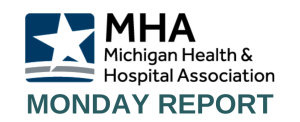The Michigan Department of Health and Human Services and the Department of Technology, Management & Budget announced the state will construct a new $325 million psychiatric hospital located at the current site of Hawthorn Center in Northville.
The new facility will provide care for patients currently housed at both Hawthorn Center and Walter P. Reuther Psychiatric Hospital in Westland. These two facilities, which are among the state’s five inpatient psychiatric hospitals for individuals who have severe mental illness or intellectual and developmental disabilities, have aging infrastructure driving the new construction.
Staff and patients currently receiving care at Hawthorn Center will be moved to a separate unit at Walter Reuther to allow for the demolition of the current Hawthorn facility until the project’s anticipated completion in 2026.
The new facility will serve all ages with distinct facilities that separates living and programmatic spaces for children and adults while including spaces for administration and food service.
Members with questions may contact Lauren LaPine at the MHA.


 State Medicaid Office Addresses Legislative Policy Panel
State Medicaid Office Addresses Legislative Policy Panel MHA Provides Testimony Supporting State Psychiatric Care and Healthy Michigan Plan
MHA Provides Testimony Supporting State Psychiatric Care and Healthy Michigan Plan The Biden Budget: Key Signals to Voters and an Important Implications for the Health Industry
The Biden Budget: Key Signals to Voters and an Important Implications for the Health Industry MHA in the News
MHA in the News